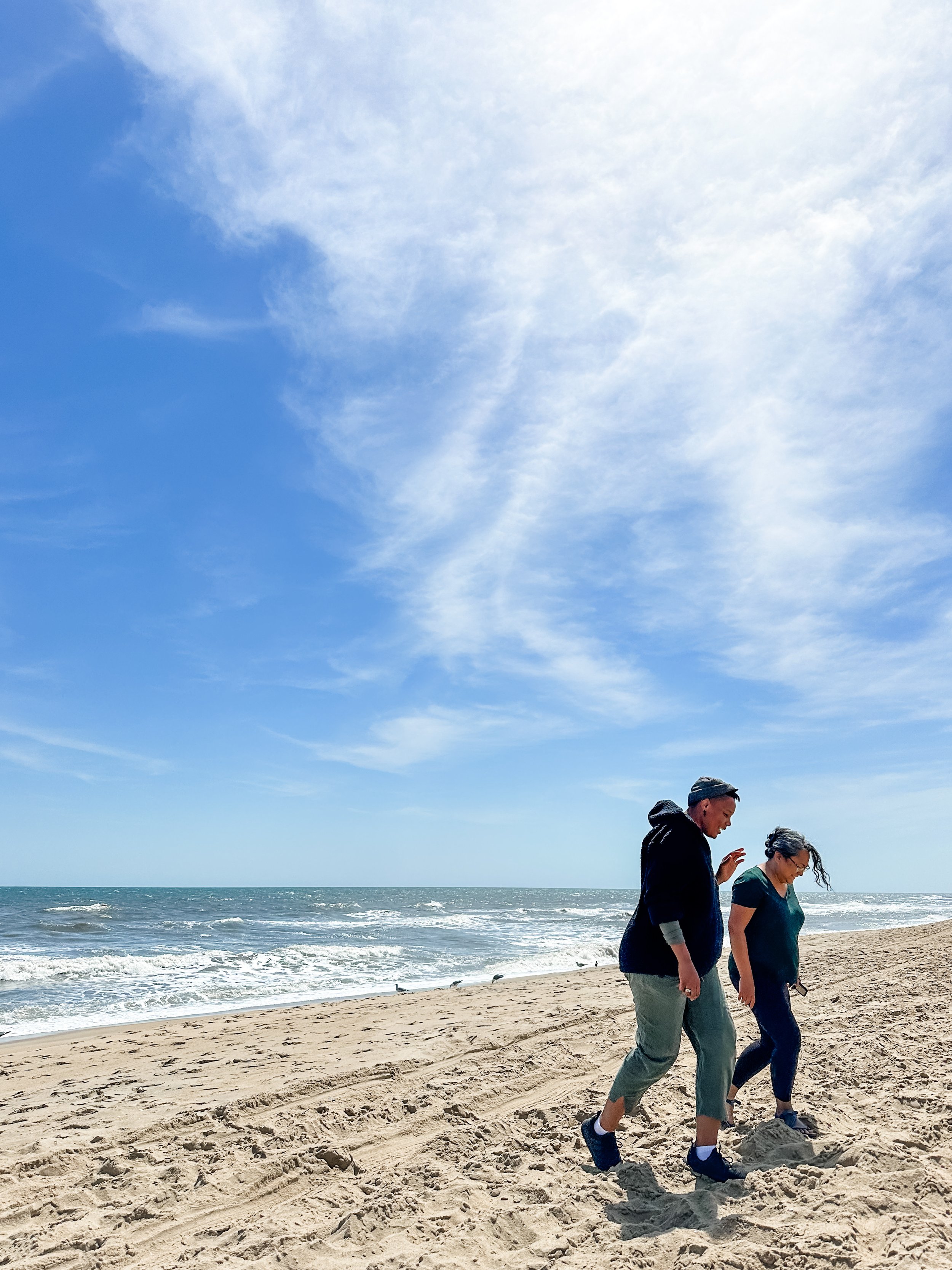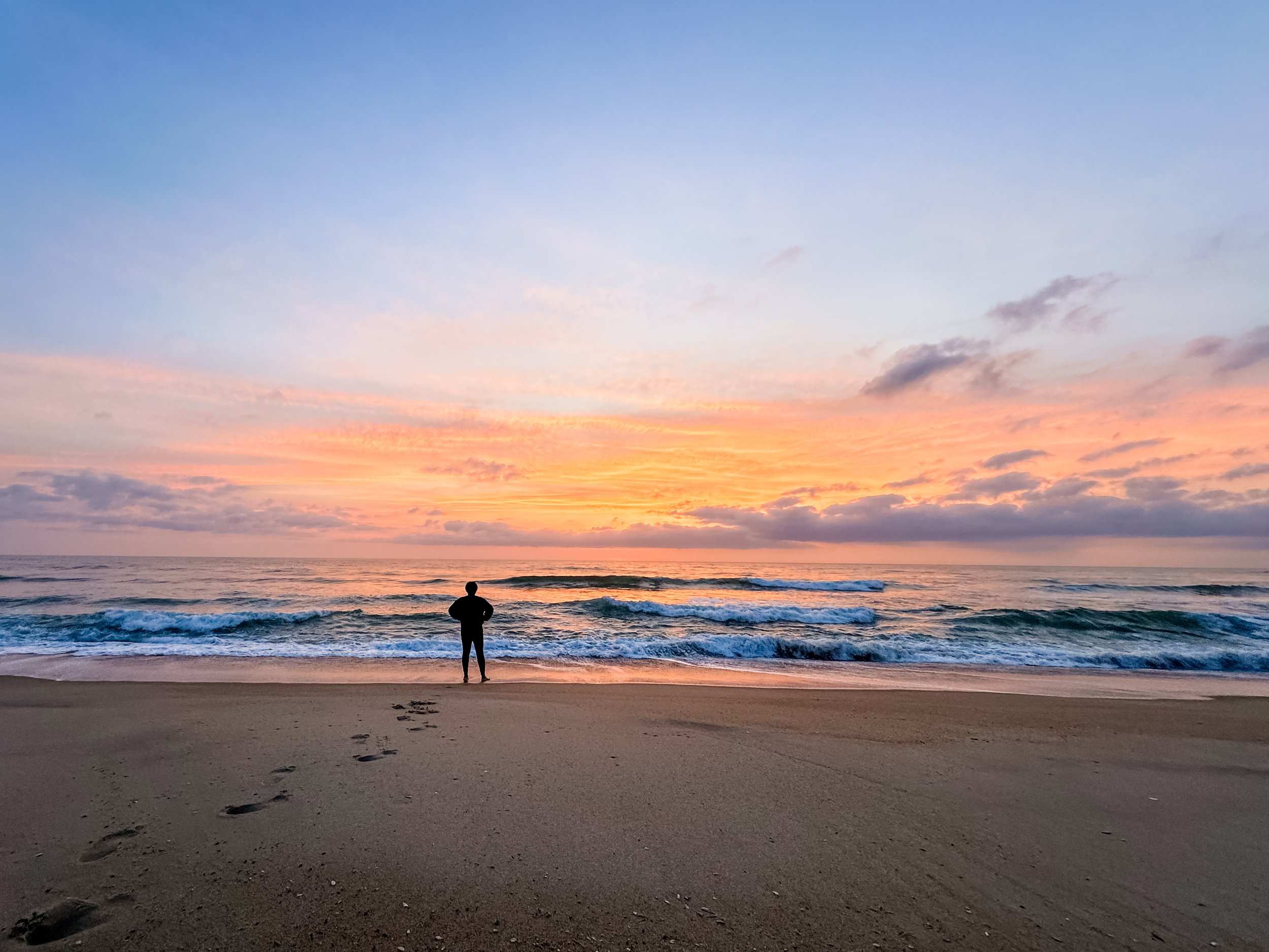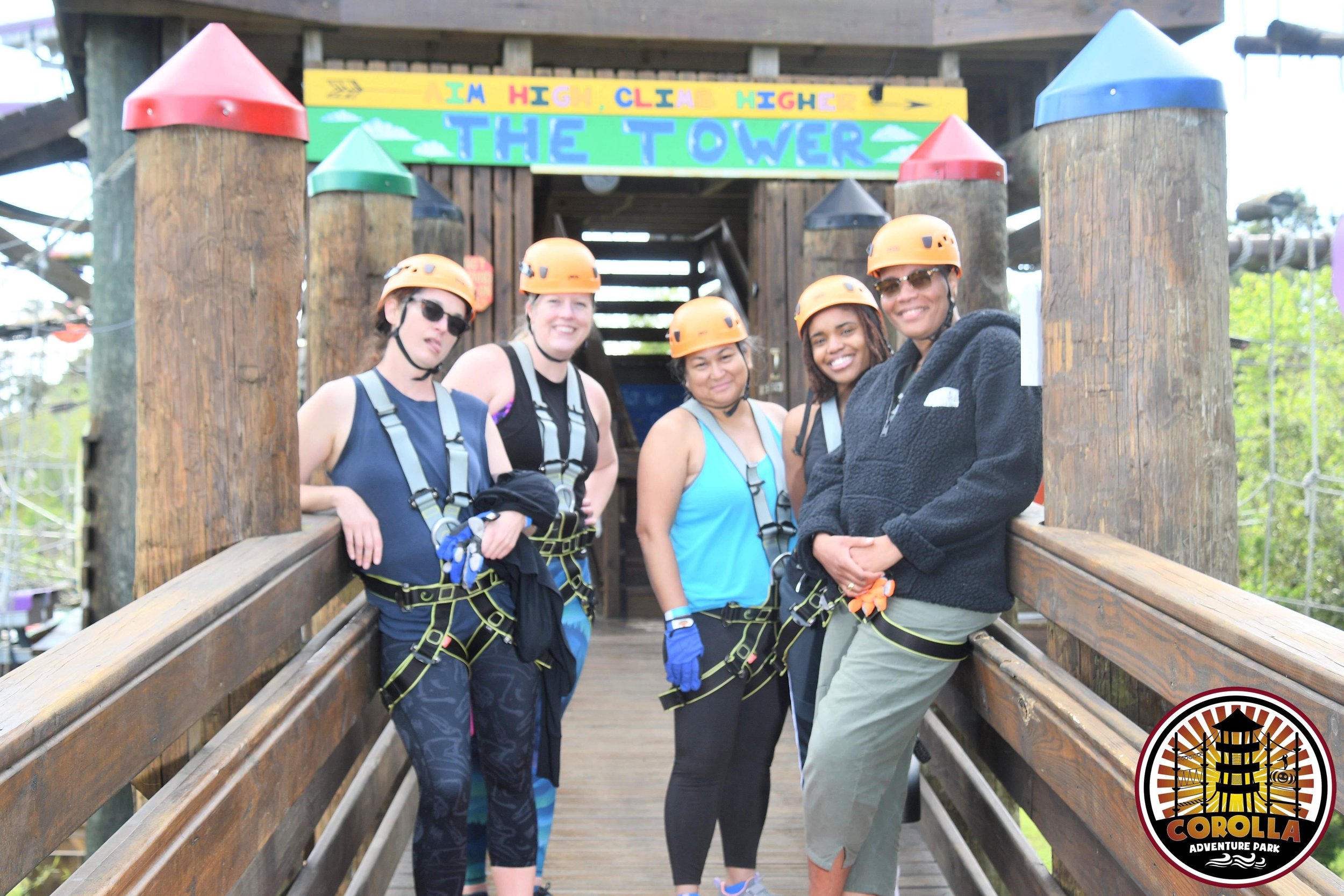The “no work” work retreat - how it went
Last week I shared about some of the planning and lead-up into our No Work Work Retreat. Today I want to talk about how it actually went.
First of all, I want to note that we weren't calling it a No Work Work Retreat before the retreat. This was more something that only started to come to my awareness in the last few days before the retreat, and it wasn’t until afterwards that I reflected on the experience of the retreat and the feedback from the team and I realized how radical it was.
What was important and radical was that we, CCI, paid not just for that time for people to rest and recover, but we also took care of expenses and logistics in order for us to do no work.
Our job was to do no work and this is part of the job that we have all been paid to do.
We really want the team to be actively seeking rest and recovery, yes in order to better do the work, but also because we are people, we are not machines, and as people we inherently need and deserve time to rest.
Not only that, but we want the team to be actively seeking rest and recovery, not just individually, but together, collectively.
As LaVoya said afterwards:
It’s part of the work of undoing white supremacy culture.
In fact, as we were talking as a team the other day about possible goals for some of our clients, we talked about how they also need a No Work Work Retreat.
What would it take for our clients to be able to take a No Work Work Retreat? It’s an interesting question and a good goal. In all honestly, most of our clients are likely not ready for it, but in fairness, I don't think we could have imagined it even just a year ago either.
And I really have to thank the LaVoya for ver vision in creating the space for rest and recovery rather than for more work.
The retreat was really amazing, at least that was my experience of it. I want to acknowledge that I think it functioned in similar and also different ways for different members of the team in different roles, with different experiences on the team, with different personalities, different identities and with different needs.
The impact
For me, there are a few things that were really impactful.
1) Meeting the whole team in person
Some of us had met some others of us, but no one had met everyone on the team before. This was the first time our entire team met in person.
As I said before, I think you can build healthy and functional remote teams, and I don’t think meeting in person is as critical as some might have us think… AND it can also be impactful to spend time together in physical space.
I know it was for me.
CCI team dinner!
2) Deepening relationships
LaVoya and Janice on a coaching beach walk.
Again, I don’t think you HAVE to meet in person in order to have deep relationships but it can help… and it can also inspire our remote relationships.
The retreat definitely helped me get a more rounded picture, especially of our behind-the-scenes team as well as of the team as a whole. I realized that the DEI consulting team is often sharing and unpacking personal experiences as part of our work, and that it’s important to make space for our research, ops and admin team to do so as well. This is not to say that it is ever required for anyone to share their most personal or traumatic experiences. However, creating a space where it’s safe enough for each of us to do so, should we so choose, is important for mutual understanding, psychological safety, trust, and ultimately creativity, collaboration and innovation.
And yes we are often (although not always) better versed at doing this in person. Something I want to think about is how we make sure we are doing this more deeply as a remote team as well.
My overall takeaway though was - wow we really do have an amazing team. It really is the CCI “dream team.”
3) Radical rest
The third thing for me that was radical was for me not so much the space to rest although that was also radical, but I have in the past few years been on work trips where I have rest time - I’ve had to. A couple of times I’ve even just booked myself into a local AirBNB for a few nights to get some rest.
However, it was the first time for a lot of team members, including team members with tween and teen kids who never have taken this time for themselves since having kids and who said they never would have had it not been for “work”.
To be able to make that happen felt really meaningful for me.
Our retreat location in Outer Banks, NC.
4) The big house
Another radical thing was having the big house that was more space than we “needed”.
In fact, the 24-bedroom house turned out to be exactly the right size for the 8 of us(!) although we did get to chuckle about the three kitchens adjacent to the main living room area with three other kitchens on the other floors… and the numerous bedrooms which meant that some of the team got to wander around from day to day trying multiple bedrooms depending on what took their fancy that day.
But it did in fact feel great to take up space, and to reset our ideas of how much space is “needed.”
5) Seeing and valuing each other
The fifth thing was the one team session that we did where we each got to say what we valued and admired about everyone else in the team, and/or how each had personally made our own jobs easier. And that for me was perhaps the most impactful experience.
Now again, I'm an extrovert, so I tend to really thrive on these kinds of interactions and discussions, and I know some of the introverts maybe would have liked a slightly different format that required less peopling and maybe more of a written component. But for me, it was really life giving to really hear how my team sees me, as well as to really hear how the team sees each other.
More than anything, thought, it was the physical and embodied experience of being in the room with the team, and having, quite literally, the physical experience of being seen, of looking people in the eye and hearing them tell me that they could see that I'd had this vision and worked to build it, and that I had brought together a group of people who had successfully created a workplace unlike any workplace that anyone else had ever experienced previously.
Our one team session in the living room at the house.
As a team of women and gender expensive mostly people of color, we've all experienced a lot of workplace trauma in our other workplaces. Even the most supportive of workplaces and bosses are still typically very toxic and harmful because we live in a culture that is toxic and harmful to us. Now that's not to say that at CCI, we are immune to the impact of those systems. The work isn’t easy and I often say what the work requires us to do is throw ourselves in front of the freight train white supremacy on a daily basis.
I worry about and I am cognizant of the impact that has on each of us differently. It's a constant project and lifelong project to figure out how to mitigate, reduce, make up for, protect us from, recover, and heal from those impacts that each of us have experienced throughout our lives, and continue to experience, even at CCI and in the work that we do, as well as in our ongoing personal lives.
If all we do at CCI is create something different for ourselves, that in itself feels like a big undertaking.
6) Realizing we are all used to being the most reliable person in the room
I’ve talked before about how everyone is traumatized. As I said, by traumatized, because I don't think everyone identifies as traumatized, I mean that we, or our ancestors or people like us have experienced past adverse experiences that impact how we experience and react to and act in the present.
Everyone is traumatized.
And everyone on our team specifically, was assigned female at birth and we are all caregivers. If not to our own children and elders, then to related children and elders. And the piece that really kind of hit me in the gut was LaVoya talking about how we are each being the most reliable person in the room
This is something to be really proud of.
However, none of us really chose that, nor was it really optional.
I mean, yes, many of us did actively choose to have children, but none of us had a choice but to have children within dominant culture, which means that to have children is to put yourself up for harm. And then even those of us who don't have children are often still left holding the bag, providing care for family members and/or have had a caretaking a role in their own family, since quite young.
From left to right - Rita, Karyn, Janice, Lori and LaVoya on a local ropes course.
And so that just really struck me like a ton of bricks.
Like a ton of validating bricks, but still a ton of bricks.
We are each used to being the most reliable person in the room and not even in the room, in our lives.
And what does it mean to have a team where each of us are used to playing that role and how can we divest from that role even just a little bit - how can we build a team that doesn't replicate that dynamic?
And for me, I actually did not have to be the most reliable person on the retreat because the LaVoya was the person designing the retreat, and facilitating the retreat. And ve also had help. So hopefully that was not as much of a cost as it might have been. And I've also been talking to ver about how we get a for chance to have that space held for ver.
From left to right - Alethea, LaVoya, Danae and Malaika.
7) Transition into vacation
The final thing, of course, that I already wrote about, is how the retreat just happened to set me up perfectly for one of the best vacations I've ever had, and I think it was one of the best vacations I've ever had precisely because it was following on the retreat.
This wasn’t completely intentional, it happened that the team identified April as a good time for our retreat, and my kids’ spring break is also in April, and so they ended up being back-to-back. I don’t think I could have predicted quite how well that worked for me though.
My team had been making fun of me, of the relaxed, sun-kissed, optimistic Alethea who has returned from this sequence of trips, and so, as a recovering workaholic, I’ve been really thinking about how to hold onto that and sustain the feeling of rest, recovery, support, healing, spaciousness, joy, creativity and dreaming as much as I can.
Banner photo by Alethea Cheng Fitzpatrick
Self-coaching for DEI Advocates and Leaders
Join us for a free weekly email series and check-in on co-creating real and lasting shifts towards diversity, equity, inclusion and antiracism at your company or organization. Sign up here.










